Abstract
Three retarded children were trained, using imitation and reinforcement procedures, to produce past and present tense forms of verbs in response to verbal requests. Two types of experimental sessions were arranged: training sessions and probe sessions. During training sessions, a child was trained to produce one verb in both the past and the present tense. Then, in a probe session, the generalization of this training was tested by presenting to the child a series of untrained verbs interspersed with previously trained verbs. Responses to untrained verbs were never reinforced. Training sessions alternated with probe sessions throughout a multiple baseline design involving four classes of verb inflections as the baselines. The results showed that, as past and present tense forms of verbs within an inflectional class were trained, the children correctly produced past and present tense forms of untrained verbs within this class. When verbs from two or more classes were trained, the children correctly produced the verb tenses from each of these classes. Thus, the imitation and reinforcement procedures were effective in teaching generative use of verb inflections.
Full text
PDF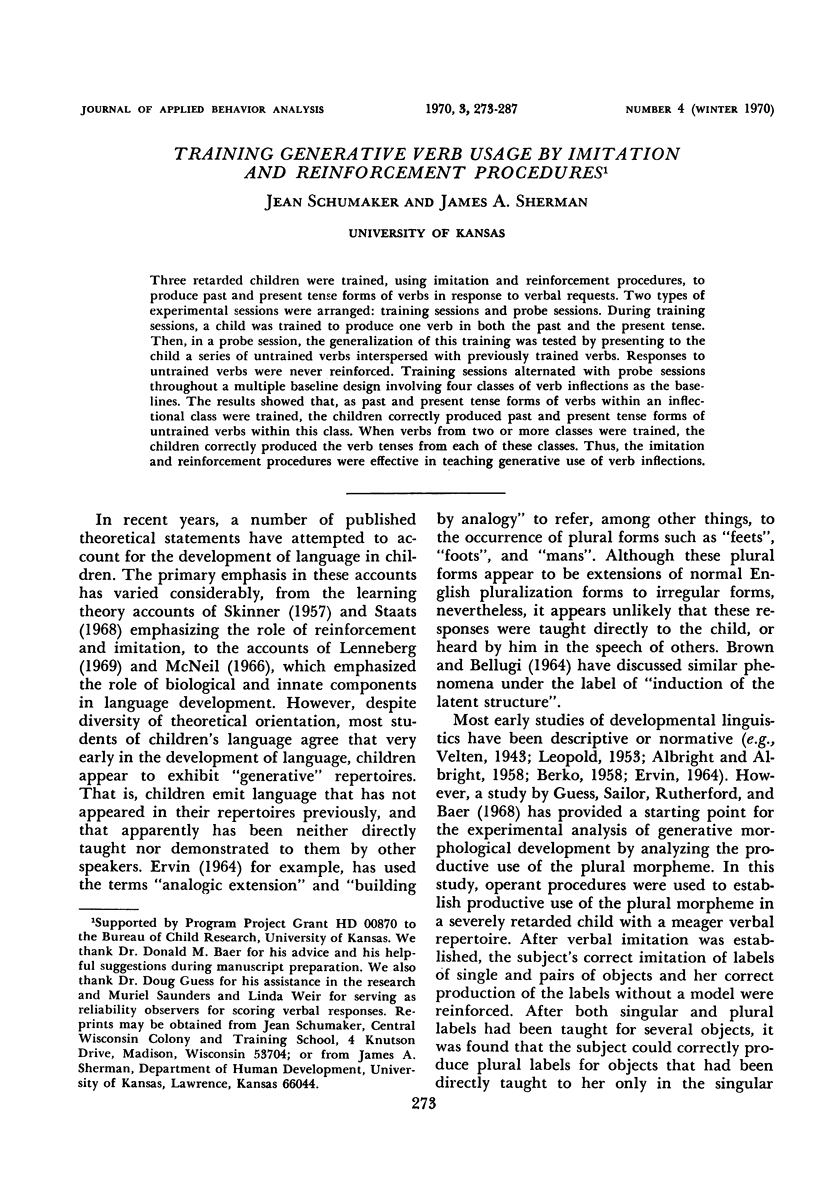
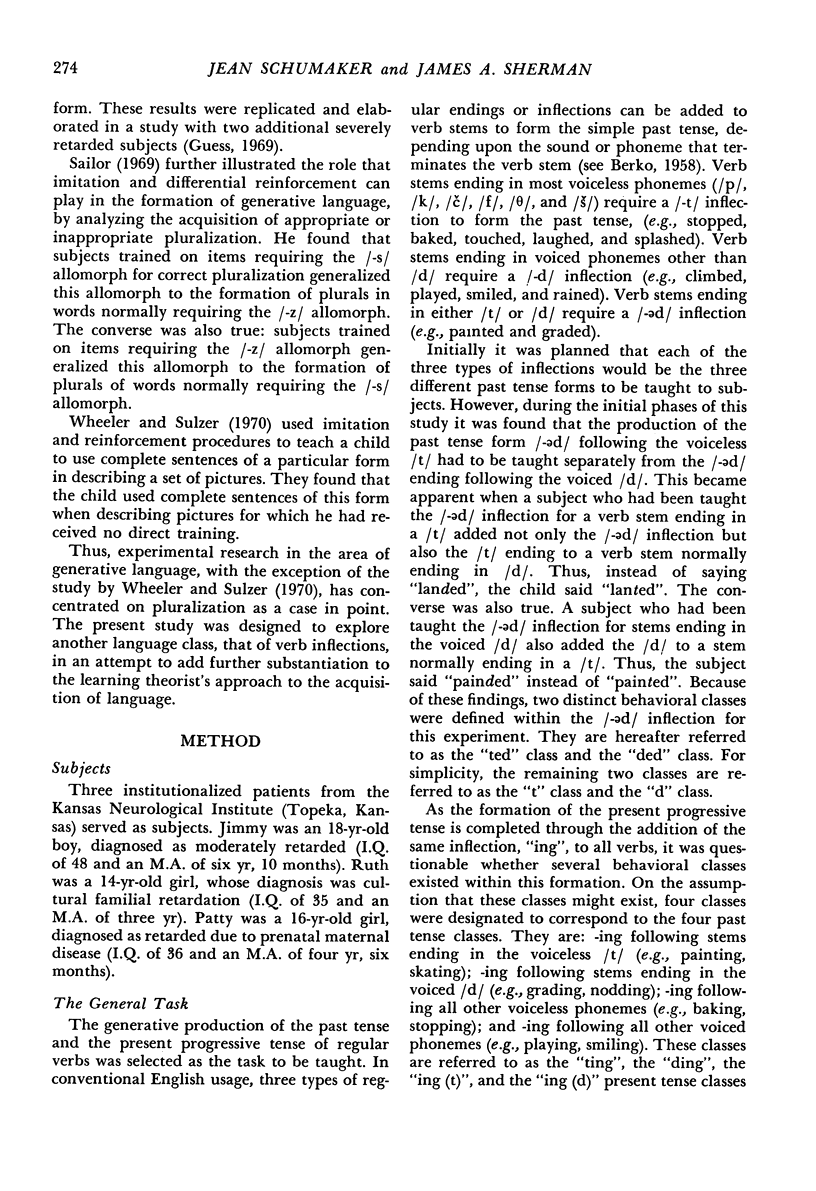
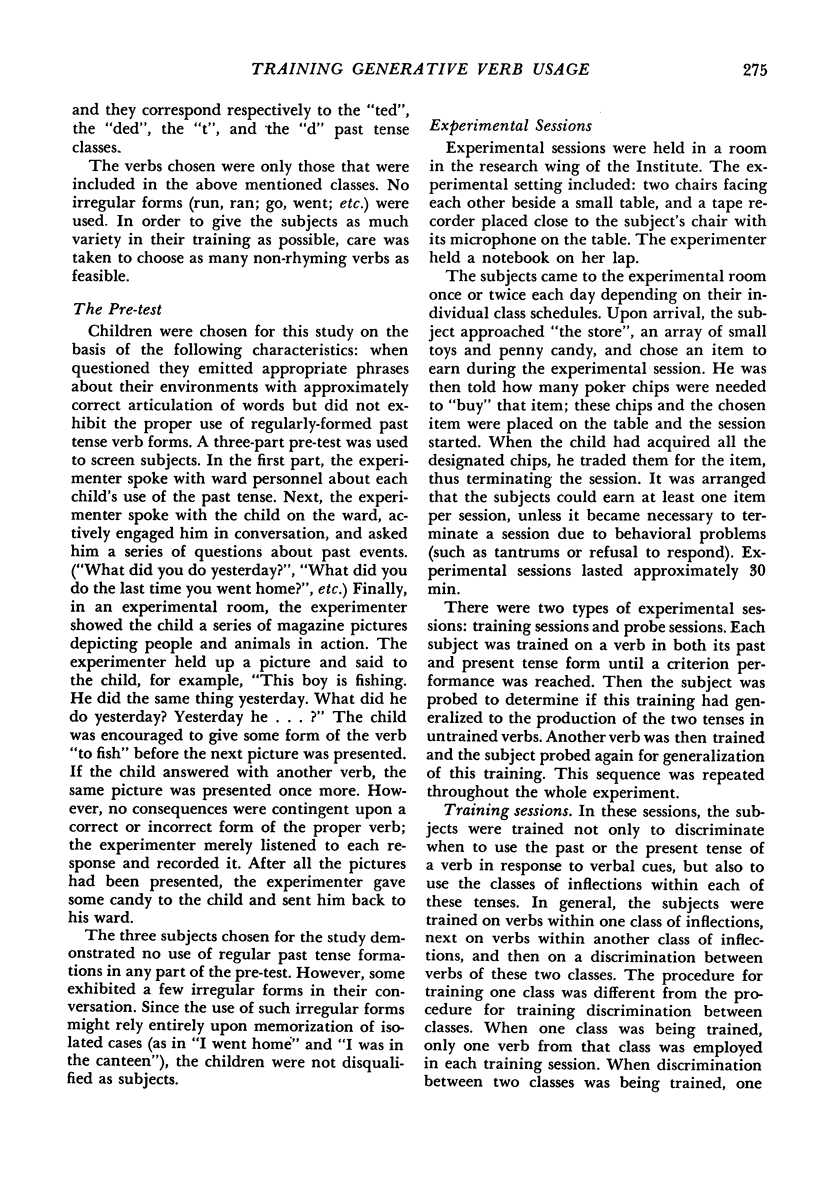
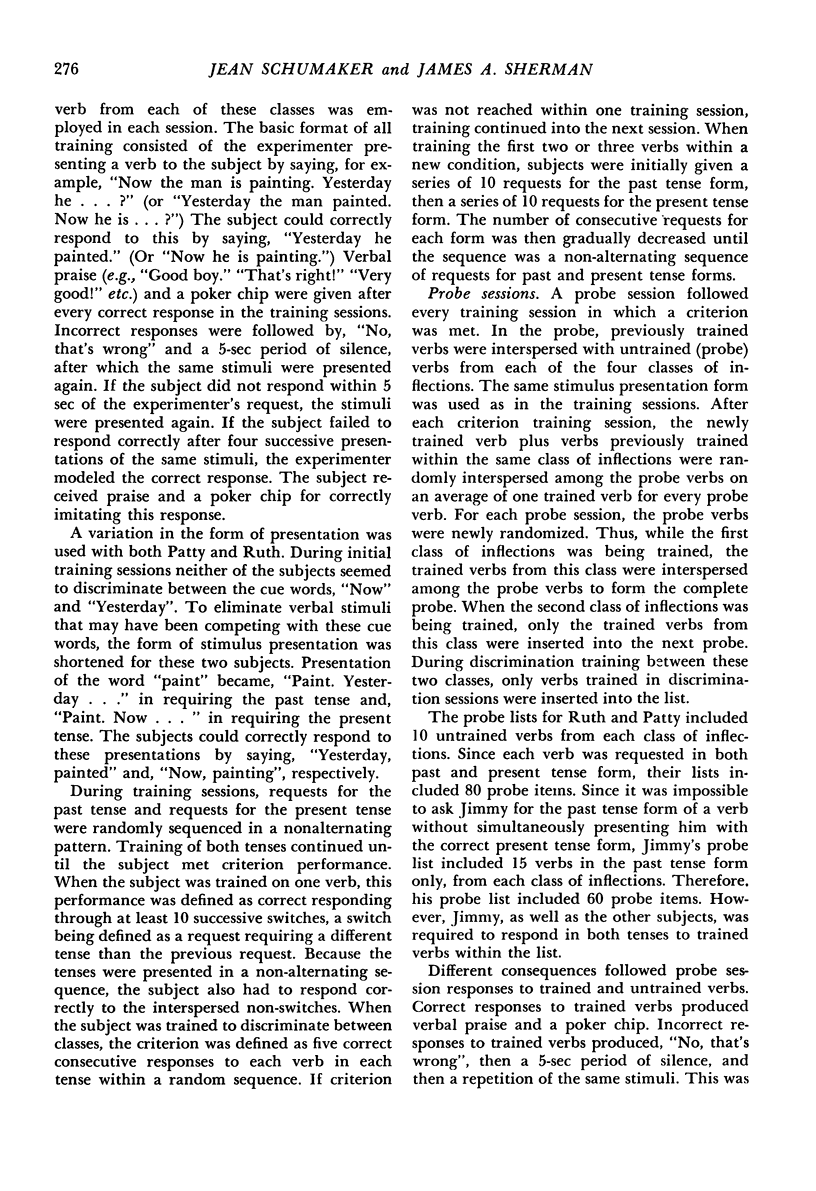
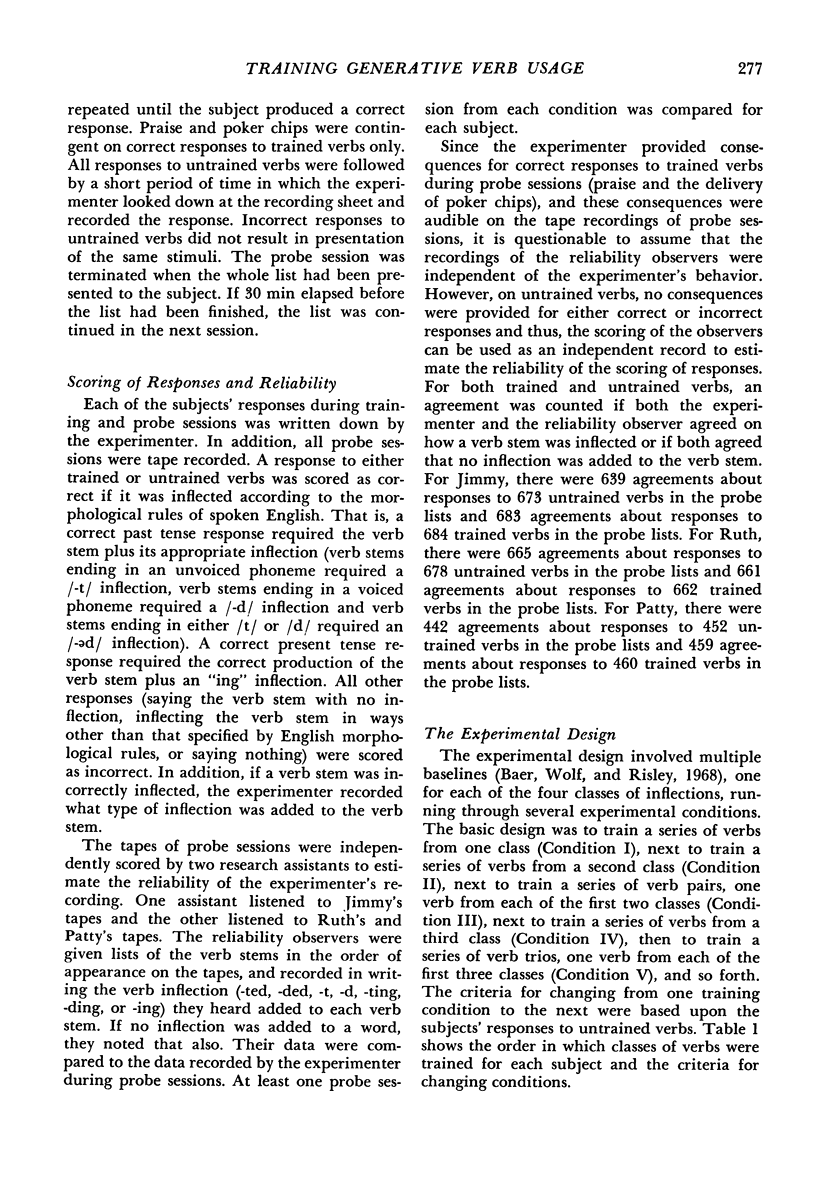
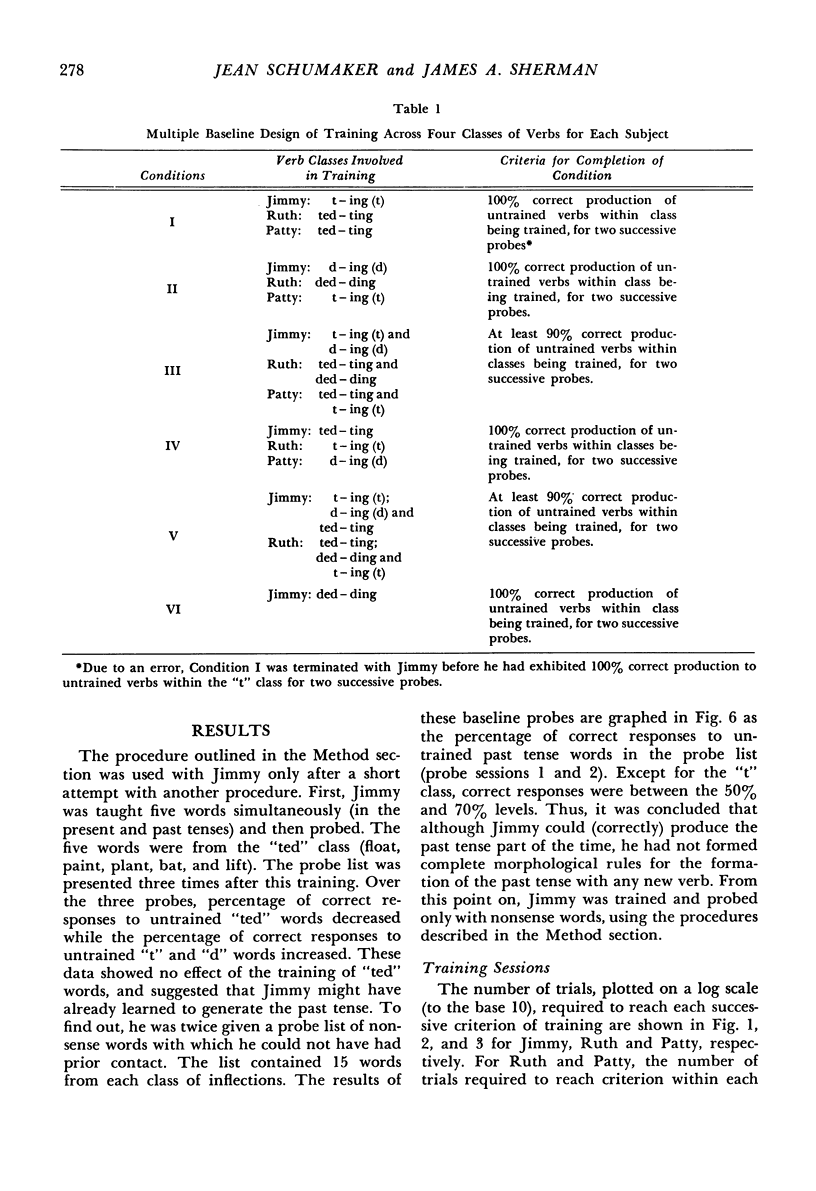
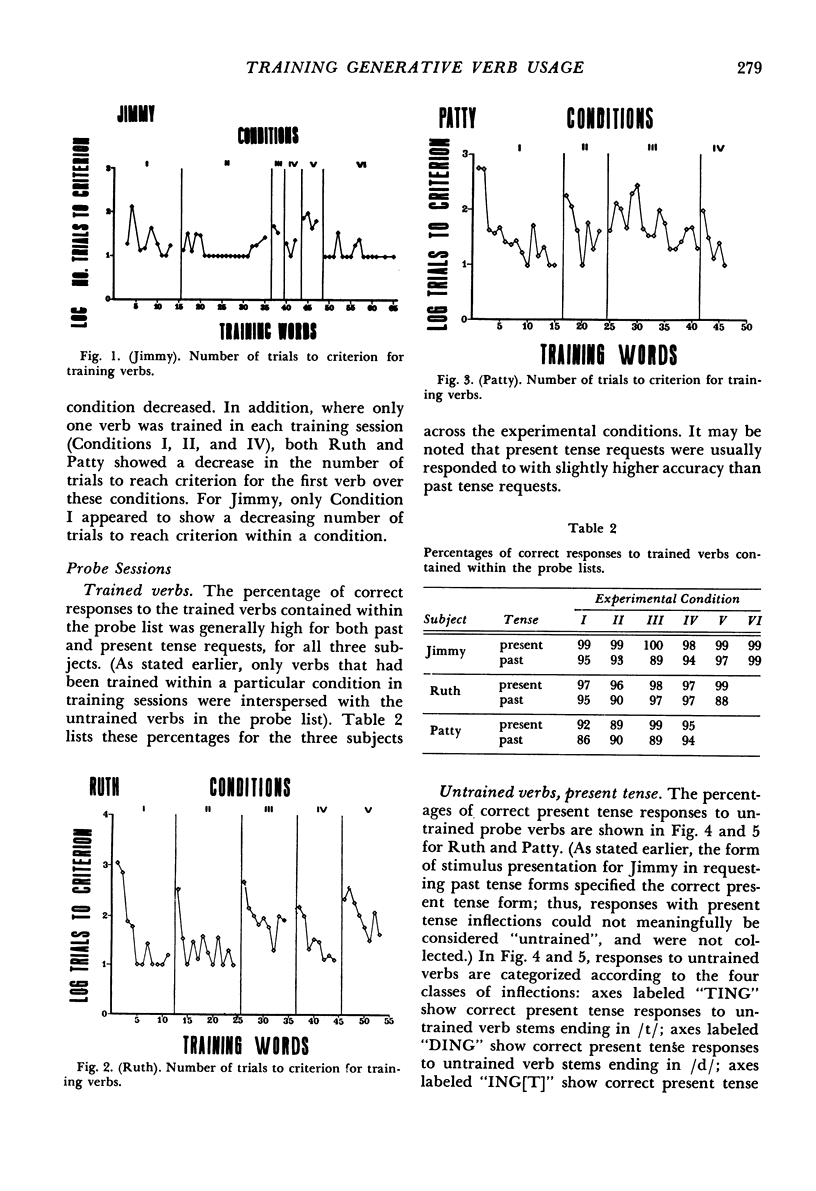
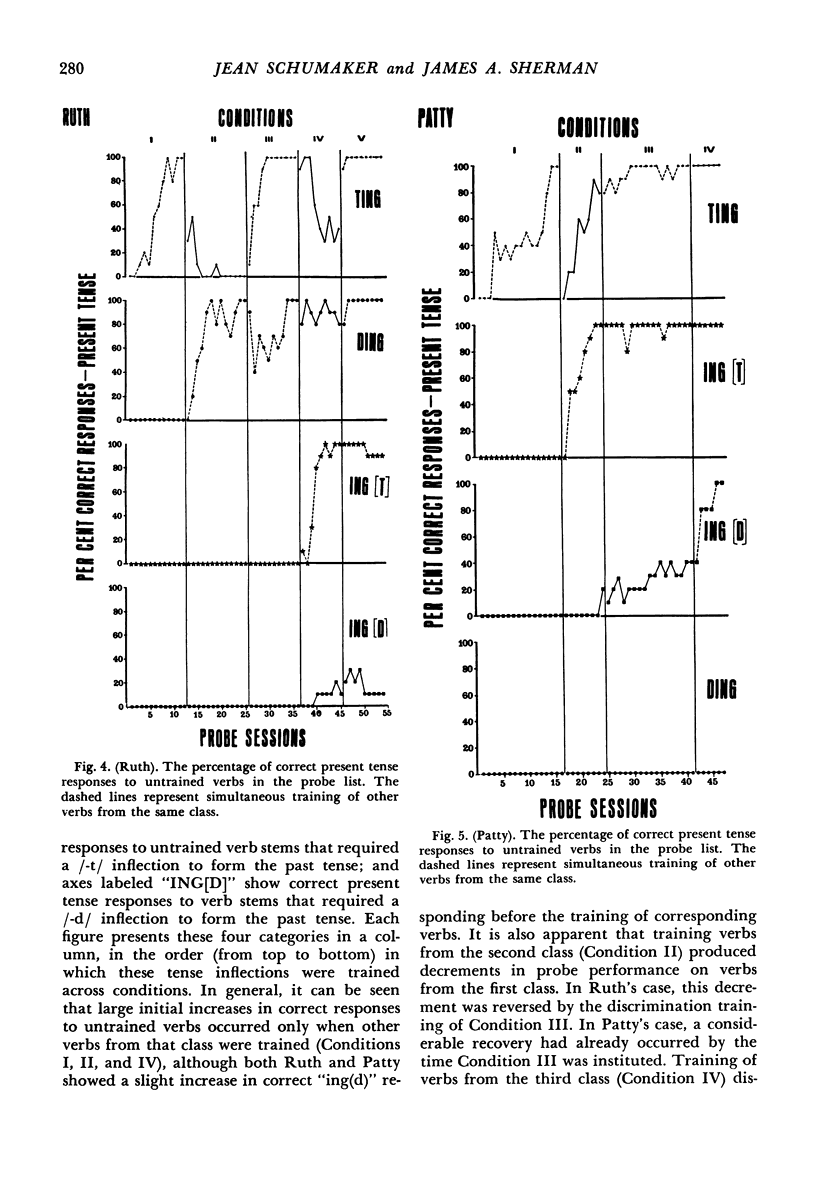
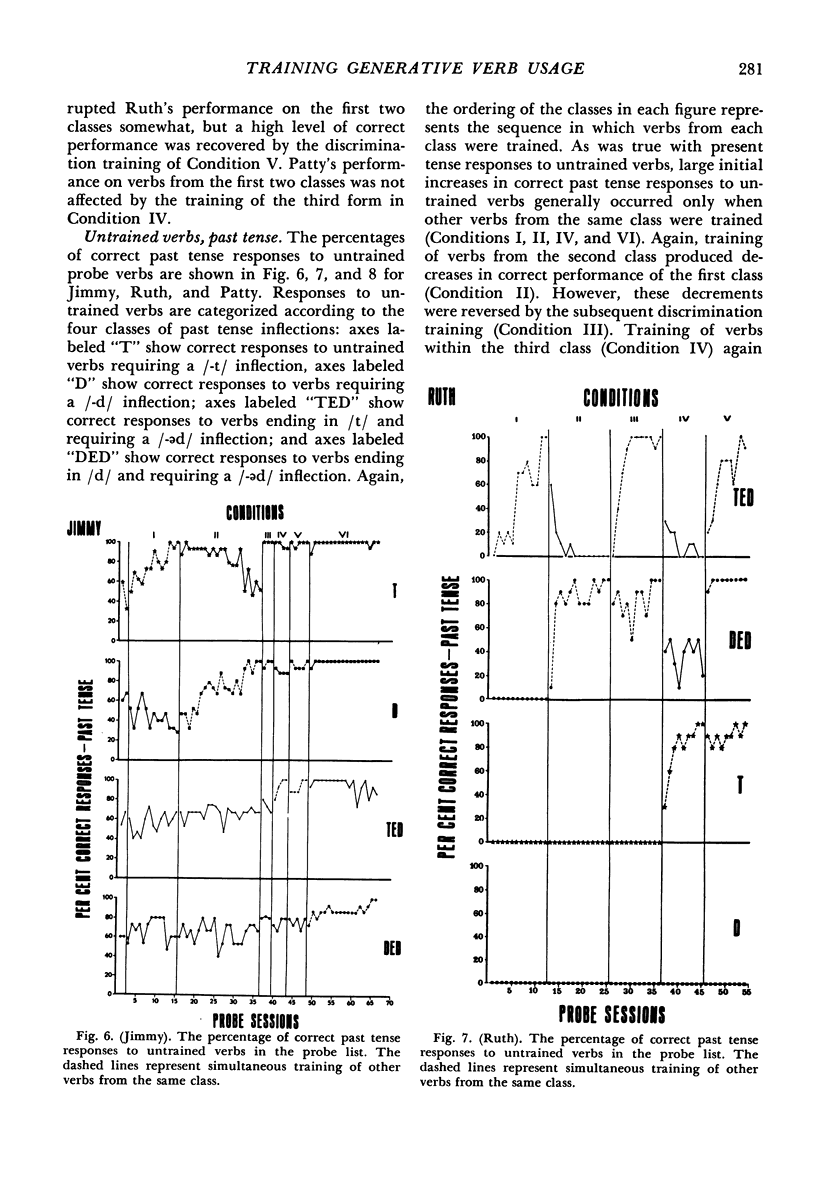
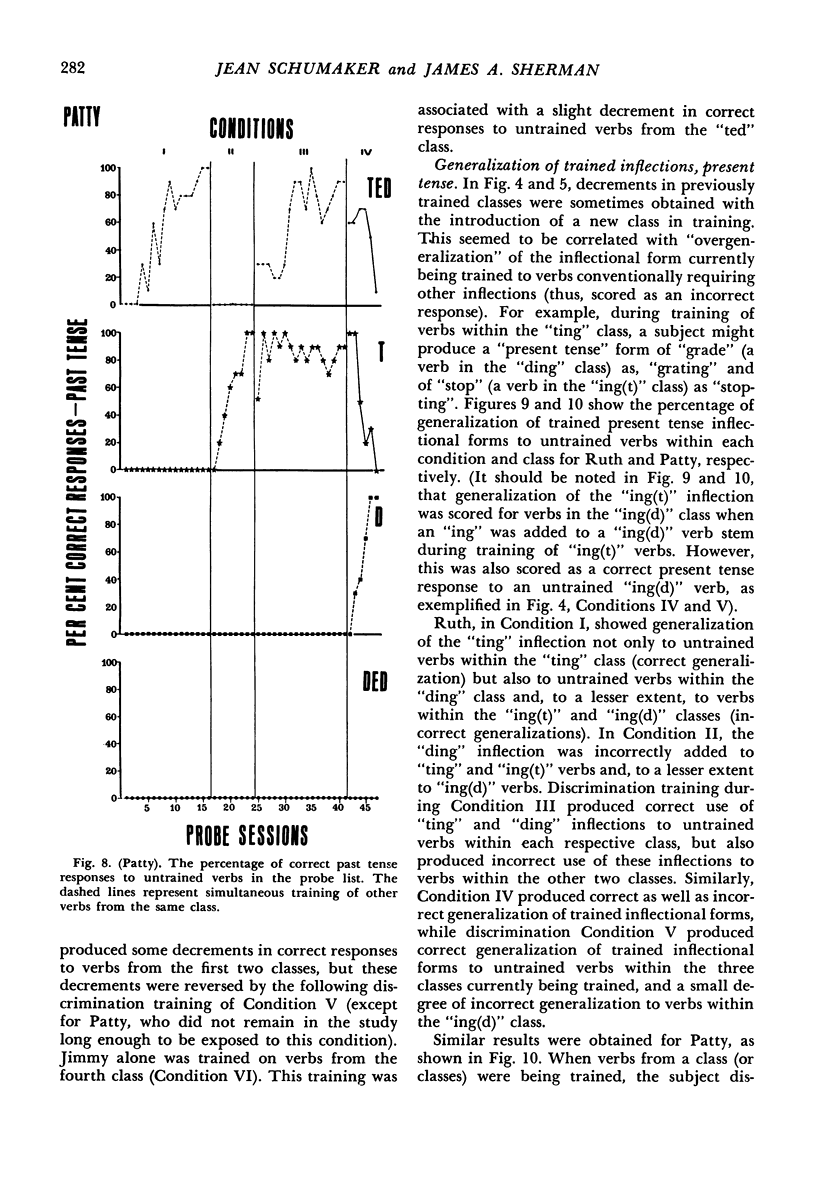
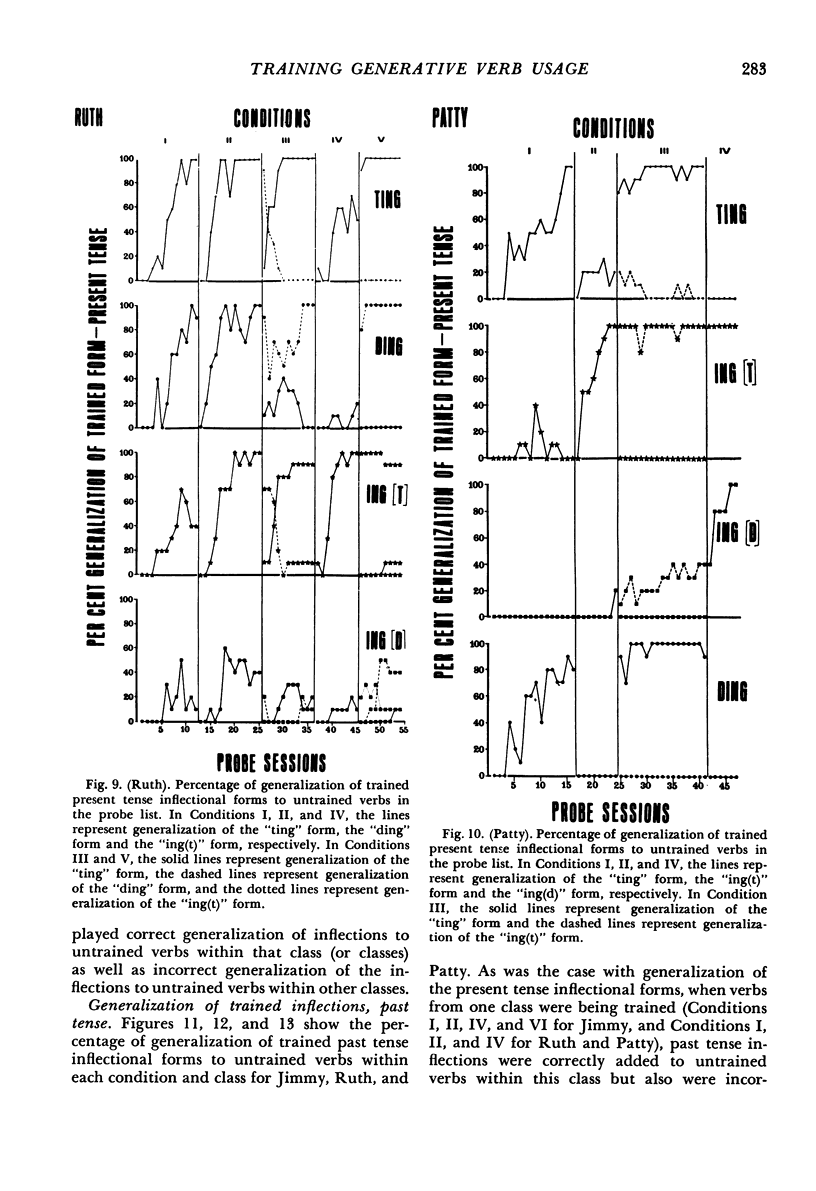
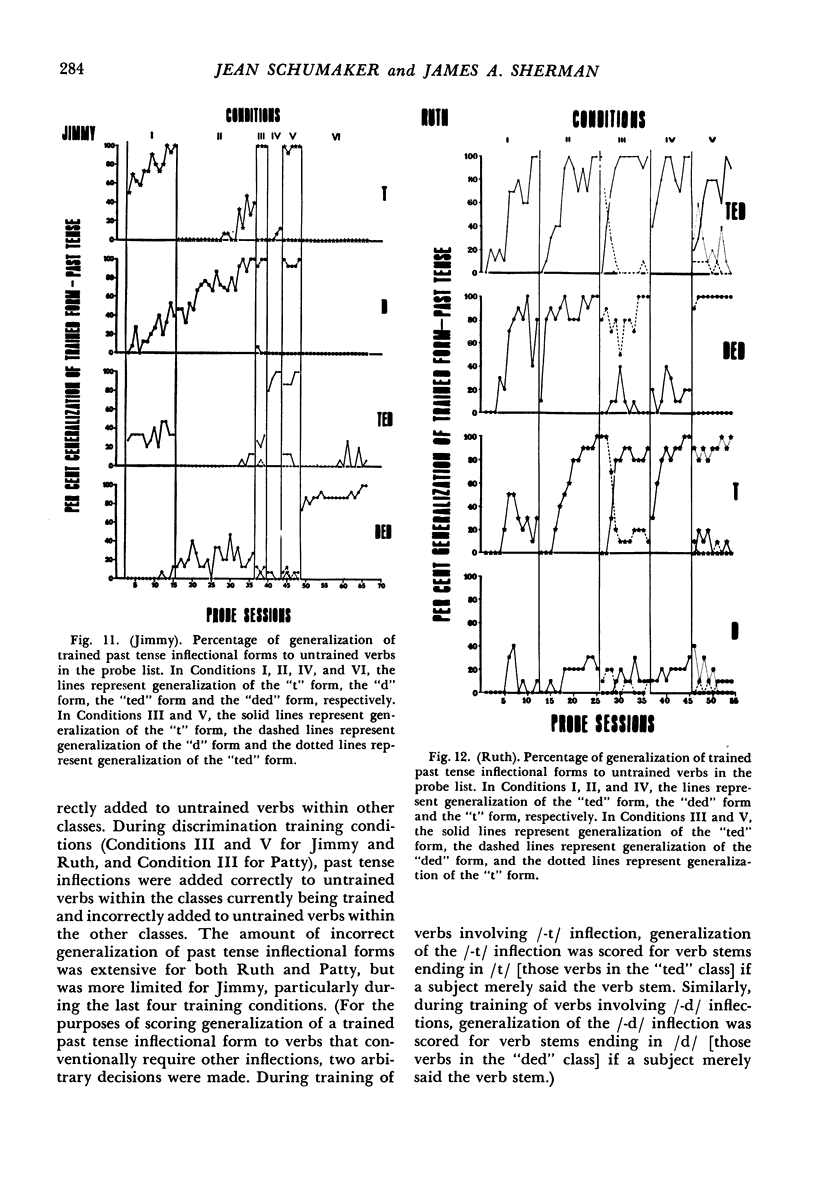
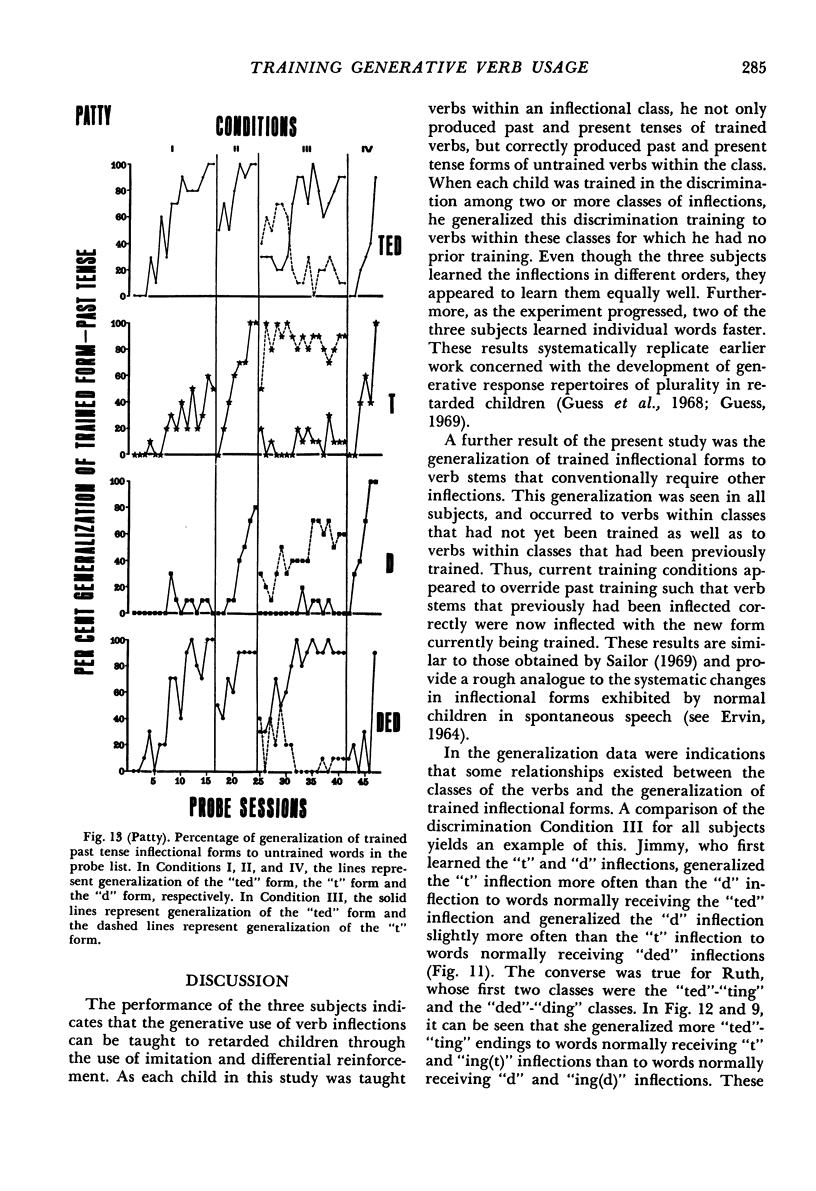
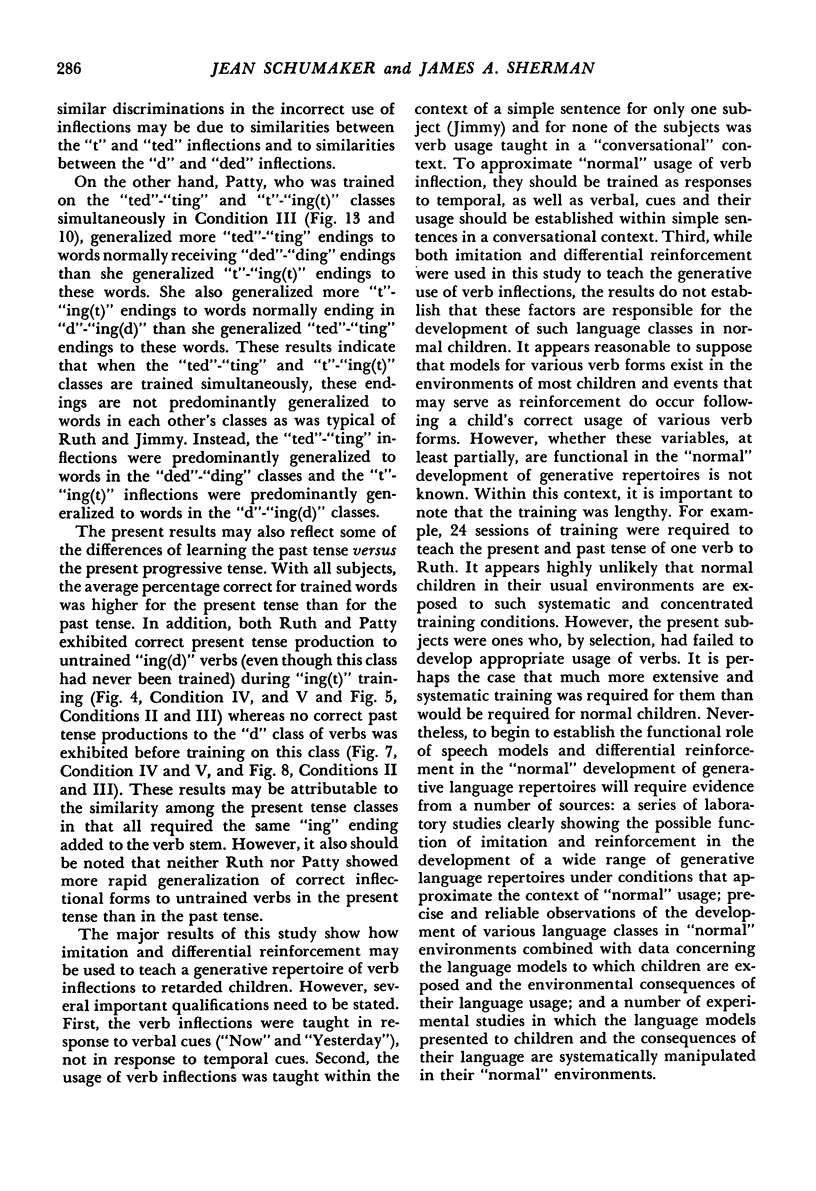
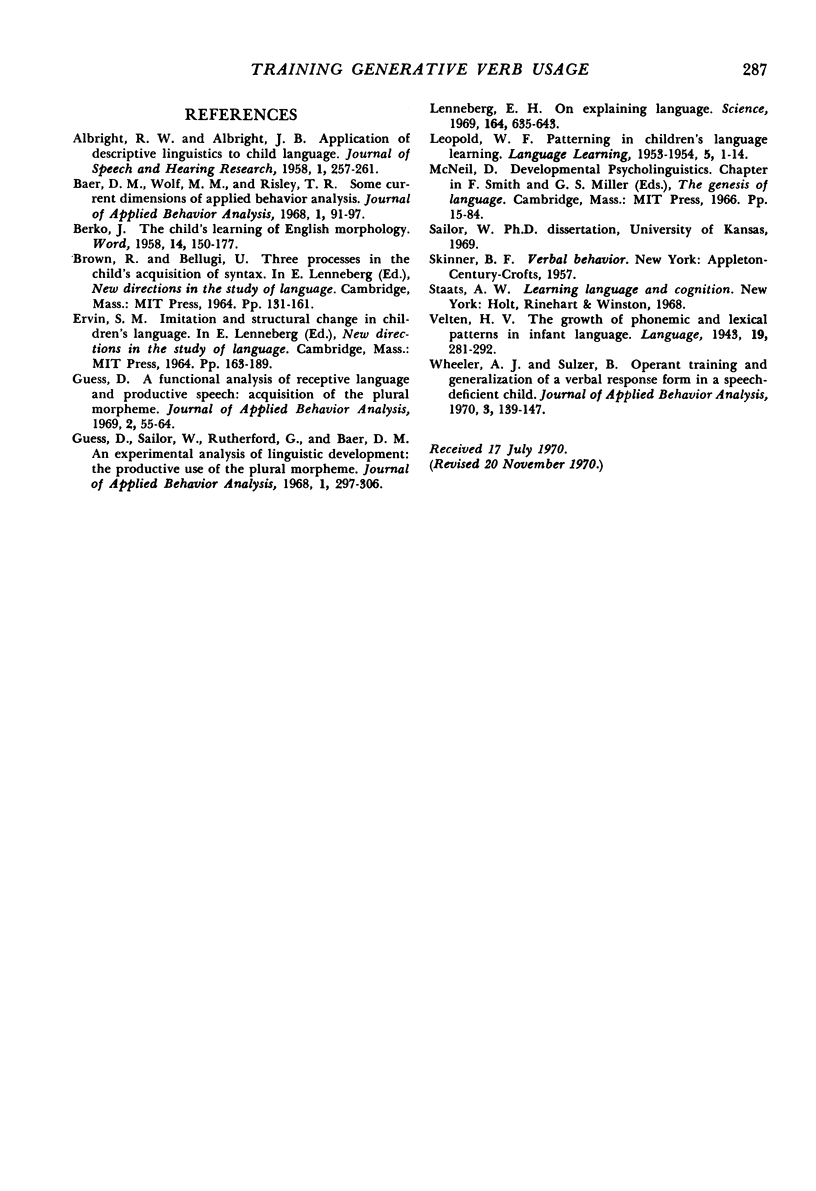
Selected References
These references are in PubMed. This may not be the complete list of references from this article.
- ALBRIGHT R. W., ALBRIGHT J. B. Application of descriptive linguistics to child language. J Speech Hear Res. 1958 Sep;1(3):257–261. doi: 10.1044/jshr.0103.257. [DOI] [PubMed] [Google Scholar]
- Baer D. M., Wolf M. M., Risley T. R. Some current dimensions of applied behavior analysis. J Appl Behav Anal. 1968 Spring;1(1):91–97. doi: 10.1901/jaba.1968.1-91. [DOI] [PMC free article] [PubMed] [Google Scholar]
- Guess D. A functional analysis of receptive language and productive speech: acquisition of the plural morpheme. J Appl Behav Anal. 1969 Spring;2(1):55–64. doi: 10.1901/jaba.1969.2-55. [DOI] [PMC free article] [PubMed] [Google Scholar]
- Guess D., Sailor W., Rutherford G., Baer D. M. An experimental analysis of linguistic development: the productive use of the plural morpheme. J Appl Behav Anal. 1968 Winter;1(4):297–306. doi: 10.1901/jaba.1968.1-297. [DOI] [PMC free article] [PubMed] [Google Scholar]
- Lenneberg E. H. On explaining language. Science. 1969 May 9;164(3880):635–643. doi: 10.1126/science.164.3880.635. [DOI] [PubMed] [Google Scholar]
- Wheeler A. J., Sulzer B. Operant training and generalization of a verbal response form in a speech-deficient child. J Appl Behav Anal. 1970 Summer;3(2):139–147. doi: 10.1901/jaba.1970.3-139. [DOI] [PMC free article] [PubMed] [Google Scholar]


